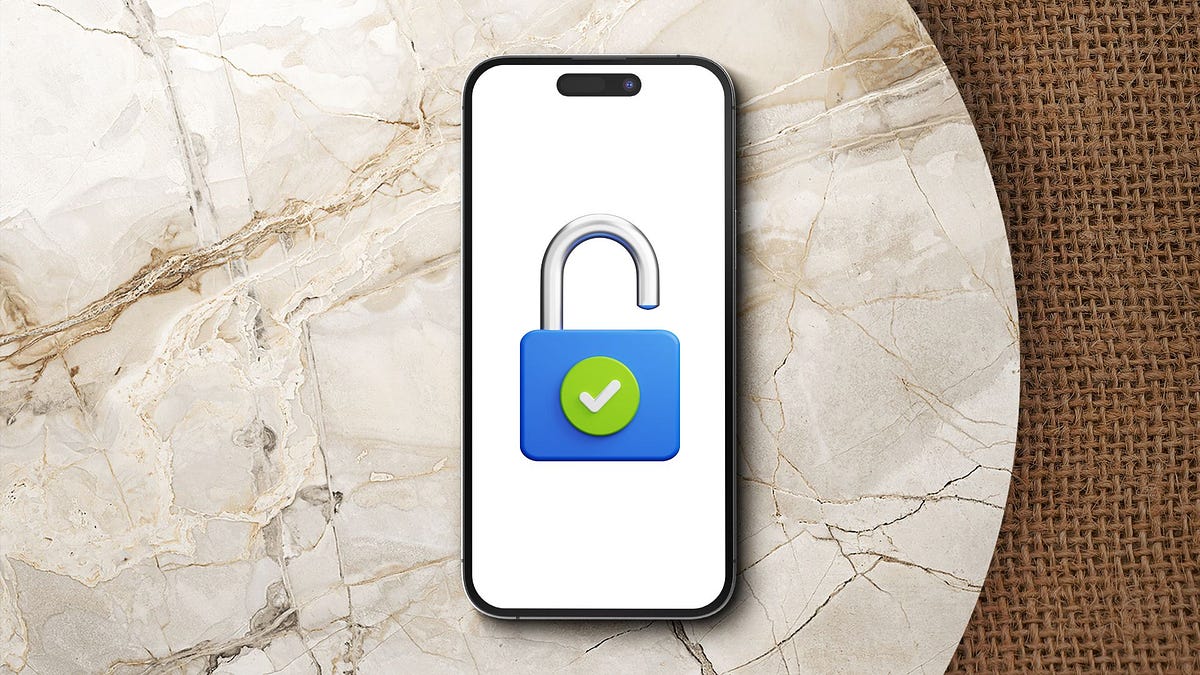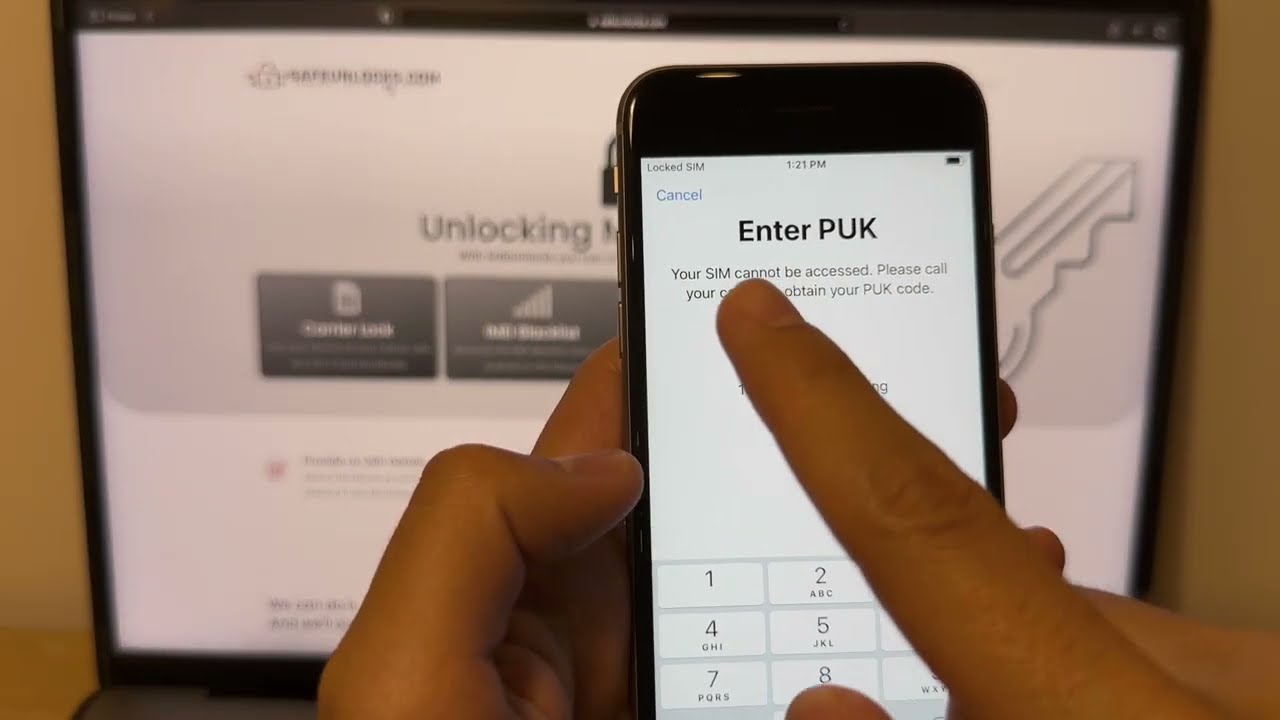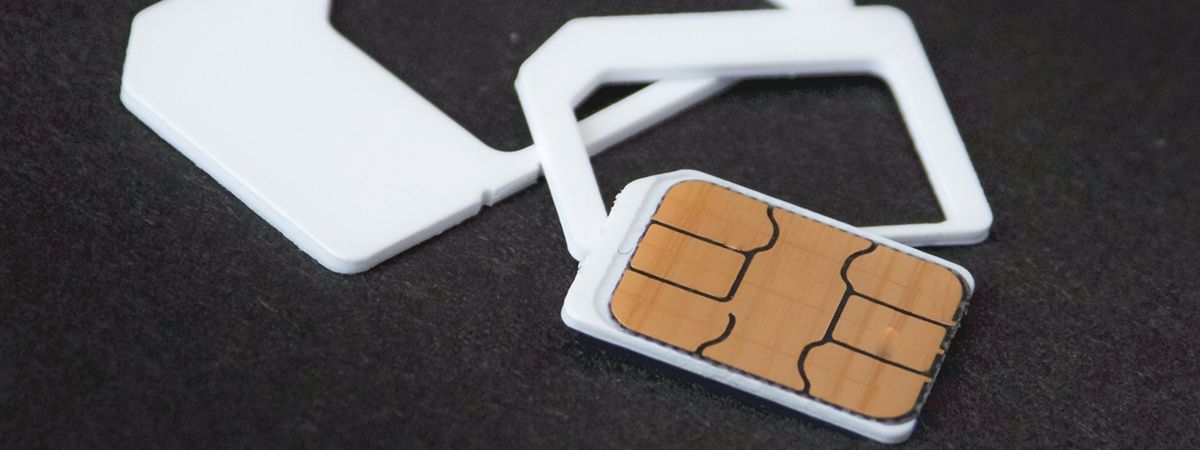Introduction
Unlocking a SIM card can be a game-changer for mobile device users, offering the freedom to switch carriers, travel internationally, and take advantage of various mobile plans. Understanding the intricacies of SIM card locking and the processes involved in unlocking is crucial for anyone seeking to maximize the potential of their device.
In this comprehensive guide, we will delve into the world of SIM card unlocking, shedding light on the various methods, requirements, and potential considerations. Whether you're a seasoned tech enthusiast or a casual mobile user, this guide aims to demystify the process and equip you with the knowledge needed to navigate the realm of SIM card unlocking with confidence.
Stay tuned as we explore the ins and outs of unlocking a SIM card, including the specific requirements for unlocking, the methods available for achieving this, and the potential risks and considerations associated with the process. By the end of this guide, you'll have a clear understanding of how to unlock your SIM card, empowering you to make informed decisions regarding your mobile device and service provider.
Let's embark on this enlightening journey into the world of SIM card unlocking, where we'll unravel the complexities, unveil the possibilities, and equip you with the essential knowledge to unlock the full potential of your mobile device.
Understanding SIM Card Locking
SIM card locking, also known as SIM lock, is a feature implemented by mobile carriers to restrict the use of a mobile device to their network. When a device is locked to a specific carrier, it can only be used with SIM cards from that carrier, preventing users from easily switching to a different network. This practice has been common among carriers globally, often as a part of subsidized phone plans or contracts.
The primary purpose of SIM card locking is to ensure that customers fulfill their contractual obligations with the carrier, especially for devices acquired at a discounted price. By restricting the device to their network, carriers aim to retain customers and recoup the subsidy provided for the device.
It's important to note that SIM card locking applies to GSM-based devices, as CDMA devices do not use SIM cards in the same way. When a device is locked, it typically displays a message indicating that it can only be used with a specific carrier's SIM card.
Understanding the implications of SIM card locking is essential for mobile device users. It directly impacts the flexibility and freedom to choose a mobile service provider and can restrict the use of the device when traveling internationally. Additionally, unlocking a SIM card can significantly increase the resale value of a device, as it becomes compatible with a wider range of carriers.
As the mobile industry continues to evolve, some countries and regulatory bodies have imposed regulations to promote unlocking and increase consumer choice. In the United States, for example, the Unlocking Consumer Choice and Wireless Competition Act was passed to facilitate the unlocking of mobile devices, including SIM cards, under certain conditions.
Overall, comprehending the concept of SIM card locking provides valuable insights into the dynamics of the mobile industry and empowers users to make informed decisions regarding their devices and service providers. In the following sections, we will explore the specific requirements and methods for unlocking a SIM card, equipping you with the knowledge needed to navigate this process effectively.
Requirements for Unlocking
Before embarking on the journey to unlock a SIM card, it's essential to understand the specific requirements that must be met to facilitate this process. While the exact criteria may vary based on the carrier and device, certain fundamental requirements are typically universal.
-
Device Eligibility: The foremost requirement for unlocking a SIM card is ensuring that the device is eligible for unlocking. This often involves meeting specific criteria set forth by the carrier, such as completing the terms of any associated contract or installment plan, ensuring the device is fully paid for, and fulfilling any other relevant obligations. Carriers may also impose a waiting period before a device becomes eligible for unlocking.
-
Account Standing: The account associated with the device must be in good standing. This entails settling any outstanding bills, ensuring compliance with the carrier's terms of service, and addressing any potential issues related to the account or service.
-
IMEI and Device Information: The International Mobile Equipment Identity (IMEI) number of the device is a crucial piece of information required for unlocking. This unique identifier is used to validate the authenticity of the device and ensure that it meets the necessary criteria for unlocking. Additionally, providing accurate device information, such as the model and serial number, is often part of the unlocking process.
-
Proof of Purchase: In many cases, carriers require proof of purchase to initiate the unlocking process. This serves as a means of verifying ownership and confirming that the device was obtained through legitimate channels.
-
Carrier-Specific Requirements: Different carriers may have specific requirements or procedures for unlocking a SIM card. It's essential to familiarize oneself with the carrier's policies and guidelines to ensure compliance and streamline the unlocking process.
Understanding and fulfilling these requirements is pivotal in successfully unlocking a SIM card. By ensuring that the device meets the necessary criteria and adhering to the carrier's guidelines, users can navigate the unlocking process with confidence and maximize the potential of their mobile devices.
In the subsequent sections, we will delve into the various methods available for unlocking a SIM card, providing insights into the options and procedures that users can explore to liberate their devices from carrier restrictions.
Methods for Unlocking
When it comes to unlocking a SIM card, several methods are available to cater to the diverse needs of mobile device users. Each method presents unique approaches and considerations, offering flexibility and options for unlocking devices from carrier restrictions. Understanding these methods is crucial for individuals seeking to unlock their SIM cards effectively. Let's explore the primary methods for unlocking a SIM card:
1. Contacting the Carrier
One of the most direct methods for unlocking a SIM card is to reach out to the carrier directly. Many carriers provide specific procedures for unlocking devices, and contacting their customer support or visiting their retail outlets can initiate the unlocking process. By following the carrier's guidelines and providing the necessary information, such as the device's IMEI number and proof of purchase, users can request an unlock code or have the carrier unlock the device through their systems.
2. Third-Party Unlocking Services
Third-party unlocking services offer an alternative avenue for unlocking SIM cards. Numerous online platforms and service providers specialize in unlocking devices from various carriers, often offering a convenient and streamlined process for users. These services typically require users to provide the device's details and IMEI number, following which they facilitate the unlocking process for a fee. It's important to research and choose reputable third-party services to ensure a reliable and secure unlocking experience.
3. Software Unlocking
Software unlocking, while less common in modern devices, involves using specialized software or applications to unlock a SIM card. This method is often more complex and may require technical expertise, as it involves manipulating the device's software to remove carrier restrictions. It's important to note that software unlocking may void warranties and can potentially harm the device if not executed properly. Due to the inherent risks and complexities involved, software unlocking is less prevalent in current mobile device unlocking practices.
4. Hardware Unlocking
Hardware unlocking, similar to software unlocking, is a less common method that involves physically modifying the device to remove SIM card restrictions. This approach often requires intricate knowledge of the device's hardware components and can void warranties while posing the risk of irreparable damage if not performed correctly. As technology has advanced, hardware unlocking has become increasingly obsolete and is not recommended due to its inherent risks and potential adverse impacts on the device.
By understanding the various methods for unlocking a SIM card, users can evaluate the available options and choose the most suitable approach based on their specific circumstances and preferences. Whether opting for carrier-assisted unlocking, engaging third-party services, or considering alternative methods, unlocking a SIM card can empower users with the flexibility and freedom to maximize the potential of their mobile devices.
Unlocking Through AT&T
AT&T, one of the prominent mobile carriers in the United States, offers a streamlined process for unlocking SIM cards, providing customers with the opportunity to liberate their devices from carrier restrictions. Unlocking a device through AT&T involves adhering to specific guidelines and procedures set forth by the carrier, ensuring a seamless and reliable unlocking experience.
To initiate the unlocking process with AT&T, users are required to meet certain eligibility criteria, including fulfilling any contractual obligations associated with the device. This typically involves ensuring that the device has been fully paid for, completing any relevant installment plans, and maintaining a good standing with the carrier. Additionally, the device must be active on AT&T's network, and the account associated with the device must be in good standing.
Once the eligibility criteria are met, users can proceed with the unlocking request through AT&T's official channels. This often involves contacting AT&T's customer support, either through their website, over the phone, or by visiting a retail store. Users will be required to provide essential information, such as the device's IMEI number, to validate the request and initiate the unlocking process.
AT&T typically provides an unlock code or instructions to complete the unlocking process, enabling users to unlock their devices from carrier restrictions. It's important to follow AT&T's guidelines meticulously and accurately input any provided unlock code to ensure a successful unlocking outcome.
By unlocking a device through AT&T, users can gain the flexibility to use their devices with other compatible carriers, both domestically and internationally. This opens up a myriad of possibilities, including the ability to switch to different mobile service providers, use local SIM cards while traveling abroad, and maximize the resale value of the device.
AT&T's commitment to facilitating the unlocking process underscores the importance of consumer choice and device flexibility. By providing a clear and structured approach to unlocking SIM cards, AT&T empowers users to leverage the full potential of their mobile devices while promoting a more open and competitive mobile ecosystem.
Overall, unlocking a SIM card through AT&T offers a reliable and sanctioned method for liberating devices from carrier restrictions, aligning with the evolving landscape of consumer empowerment and choice within the mobile industry. Through AT&T's unlocking process, users can embark on a journey towards greater device freedom and flexibility, unlocking new possibilities for their mobile experiences.
Unlocking Through Third-Party Services
Engaging third-party unlocking services provides an alternative avenue for users seeking to liberate their devices from carrier restrictions. These services offer a convenient and often expedited process, catering to individuals who may prefer a more streamlined approach to unlocking their SIM cards.
When considering third-party services, it's essential to conduct thorough research to identify reputable and trustworthy providers. Online platforms and specialized service providers offer a range of unlocking services tailored to various carriers and device models. Users can leverage these services by providing the necessary device details, including the IMEI number, to initiate the unlocking process.
Third-party services typically charge a fee for their unlocking assistance, reflecting the expertise and resources required to facilitate the process. While the cost may vary based on the provider and the complexity of the unlocking request, users can benefit from the convenience and efficiency offered by these services.
By availing of third-party unlocking services, users can unlock their devices from carrier restrictions, gaining the flexibility to use their devices with a broader range of mobile service providers. This can be particularly advantageous for individuals seeking to switch carriers or utilize local SIM cards while traveling internationally, enabling seamless connectivity and cost-effective mobile usage abroad.
It's important to exercise caution when selecting a third-party unlocking service, as the industry encompasses various providers with varying levels of reliability and trustworthiness. Prioritizing reputable and established services can mitigate potential risks and ensure a secure unlocking experience.
Overall, unlocking through third-party services presents a viable option for individuals looking to unlock their SIM cards efficiently and gain the freedom to choose their preferred mobile service providers. By leveraging the expertise and resources offered by reputable third-party providers, users can embark on a straightforward unlocking journey, unlocking new possibilities for their mobile device usage.
In the quest for unlocking a SIM card, third-party services stand as a valuable resource, offering a practical and accessible means to liberate devices from carrier restrictions and embrace a more versatile and user-centric mobile experience.
Potential Risks and Considerations
Unlocking a SIM card, while offering numerous benefits and opportunities, also entails certain risks and considerations that users should be mindful of. Understanding these potential pitfalls is crucial for making informed decisions and navigating the unlocking process effectively.
Voiding Warranties and Service Agreements
One of the primary considerations when unlocking a SIM card is the potential impact on warranties and service agreements. Many carriers and device manufacturers stipulate that unlocking a device may void its warranty or service agreement. This means that if issues arise with the device after unlocking, users may be ineligible for warranty repairs or support from the carrier. It's essential for users to weigh the benefits of unlocking against the potential loss of warranty coverage and consider the long-term implications for their devices.
Security and Fraud Risks
Engaging with unauthorized or untrustworthy unlocking services can expose users to security and fraud risks. Some illegitimate unlocking services may compromise the security of the device or engage in fraudulent activities, potentially leading to unauthorized access to personal data or financial exploitation. Users should exercise caution and thoroughly research any third-party services to mitigate the risk of falling victim to fraudulent practices.
Device Functionality and Compatibility
Unlocking a SIM card may impact the functionality and compatibility of the device with different carriers. While unlocking enables the use of other SIM cards, it's essential to consider potential limitations or incompatibilities that may arise. Certain features or services specific to the original carrier may no longer be accessible after unlocking, and the device's performance on other networks should be evaluated to ensure a seamless user experience.
Regulatory and Legal Considerations
In some regions, unlocking a SIM card may be subject to specific regulatory and legal considerations. Users should familiarize themselves with the laws and regulations governing device unlocking in their respective countries or regions to ensure compliance. Understanding the legal landscape can prevent potential issues and ensure that the unlocking process aligns with regulatory requirements.
Carrier Policies and Repercussions
Each carrier may have distinct policies and repercussions related to unlocking devices. Users should carefully review the terms and conditions set forth by their carrier to comprehend any potential consequences of unlocking a SIM card. This includes understanding any associated fees, penalties, or impacts on the user's relationship with the carrier.
By acknowledging these potential risks and considerations, users can approach the unlocking process with a comprehensive understanding of the associated implications. While unlocking offers the freedom to choose carriers and maximize device flexibility, it's essential to weigh these benefits against the potential risks and make well-informed decisions that align with individual needs and circumstances.
Conclusion
In conclusion, the process of unlocking a SIM card encompasses a multifaceted landscape of requirements, methods, and considerations, ultimately offering users the potential to liberate their devices from carrier restrictions and embrace a more flexible mobile experience. Throughout this guide, we have explored the fundamental aspects of SIM card unlocking, shedding light on the intricacies and implications associated with this practice.
Unlocking a SIM card is not merely a technical endeavor; it represents a gateway to enhanced device freedom, empowering users to transcend the limitations imposed by carrier restrictions and embrace a more dynamic mobile experience. By understanding the specific requirements for unlocking, including device eligibility, account standing, and carrier-specific guidelines, users can navigate the unlocking process with clarity and confidence.
The methods for unlocking, ranging from carrier-assisted unlocking to third-party services, offer diverse avenues for users to pursue device liberation. Each method presents unique considerations and opportunities, catering to the distinct preferences and circumstances of mobile device users. Whether opting for the sanctioned approach provided by carriers or leveraging the expertise of reputable third-party services, users can embark on a journey towards unlocking new possibilities for their devices.
However, it's essential for users to approach the unlocking process with a discerning mindset, considering the potential risks and implications. Voiding warranties, security risks, and regulatory considerations underscore the importance of making informed decisions and evaluating the long-term impacts of unlocking a SIM card. By weighing these considerations against the benefits of unlocking, users can make well-informed choices that align with their individual needs and preferences.
As the mobile industry continues to evolve, the unlocking of SIM cards reflects the broader themes of consumer empowerment and choice. It signifies the shift towards a more open and competitive mobile ecosystem, where users have the autonomy to select their preferred carriers and maximize the potential of their devices. Unlocking a SIM card is not merely a technical process; it embodies the principles of consumer freedom and device versatility, unlocking new horizons for mobile experiences.
In essence, the journey of unlocking a SIM card transcends the realm of technicalities, embodying the spirit of empowerment and choice within the mobile landscape. By equipping users with the knowledge and insights to navigate this journey, this guide aims to foster a deeper understanding of SIM card unlocking and its implications, empowering individuals to unlock the full potential of their mobile devices with confidence and clarity.

























